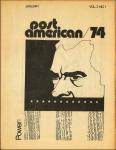There is an often spoken adage about capitalism that the rich get richer and the poor get poorer. With the return of capitalism to Chile, this adage is being reconfirmed.
One of the first economic measures instituted by the junta was an extraordinary increase in prices (for example, 250 per cent for bread, 600 per cent for cooking oil, 500 per cent for sugar and 800 per cent for chicken). In defense of this policy junta leader General Augusto Pinochet Ugarate has said: “There are many who think that we should have carried out the (price) increases by stages so that it would have been less painful. But that reminds me of the case of the generous man who had to cut off his dog’s tail, and in order not to make it suffer so much he cut off a piece every day.”
Although these measures will cause all Chileans some degree of discomfort, none will suffer more than the Chilean poor. As Jonathan Kandell, New York Times Santiago correspondent recently stated: “Austerity, largely at the expense of President Allende’s most fervent supporters, the poor, has been the watchword of Chile’s new military Government . . . With the recent hefty price rises the specter of hunger has become very real for many residents of the urban slums or poblaciones.”
Correspondence the Post American has received from some Chilean Christians supports this analysis: “Who will pay the price of these increases in prices? The poor, the factory workers, lower middle class and even the small industrialists will pay. In short, those persons who do not have access to dollars will pay the price. The rich will never have to send their servants to stand in line again.”
While the adopted inflationary measures are causing much suffering for the poor, the decisions by the junta to denationalize 115 companies expropriated during the Allende administration will greatly benefit many U.S. corporations and banks. The following major U.S. firms have regained full ownership of property they formerly held: ITT (owner of 69 per cent of the Chilean Telephone Company); General Electric (owner of 70 per cent of nationalized light-bulb factories); Dow Chemical (100 per cent owner of one photochemical plant and 70 per cent of another); Corning Glass and Pittsburgh Plate Glass (36 per cent owners of Chile’s largest glass company) and Ford (all of their extensive Chilean holdings).
Ironically the junta’s decision did not include Anaconda, Kennecott or Cerro, whose mines and other properties once accounted for more than half of the one billion dollars of U.S. investments in Chile. After the Allende government nationalized their holdings, these companies, especially Kennecott, feverishly waged their own anti-Allende campaign by making it extremely difficult or impossible for Chile to legally unload copper at foreign ports. Although their actions (combined with the U.S. orchestrated cut-off of Chile from the sources of international financing) were significant in the creation of economic chaos and the subsequent military take over, it is doubtful that denationalization of their properties will ever occur. As one U.S. embassy official put it, “I do not expect a denationalization, but possibly some additional compensation.”
The bank-workers’ union of Santiago, one of the few unions allowed to exist in post-Allende Chile, has asked First National City Bank of New York to re-establish its Chilean branches. A top official at Citibank said it is “premature” to say whether the bank will ask the junta for permission to go back into business there.
Active identification with the Chilean poor is especially difficult, given the military controls imposed by the dictatorial government. There are ways, however, and we suggest the following. In nearly every major city in this country there exists active Latin American and Chilean groups. Support them in their opposition to U.S. economic involvement in Chile. Many of these groups have ways of getting money to help the victims of the poor there and can use your financial assistance. The Post American also has means of channeling funds to poor victims of the coup (see the New Order this issue-- “Chile Fund”). If you can help in any way, please do. They need your help.
Joe Roos was on the editorial staff of the Post American when this article appeared.

Got something to say about what you're reading? We value your feedback!
